- Home
- Andrew Wareham
Long Way Place (Cannibal Country Trilogy, Book 1) Page 14
Long Way Place (Cannibal Country Trilogy, Book 1) Read online
Page 14
Ned was somewhat concerned at his proximity to such savages.
“Thick rain forest over steep mountains – two weeks hard walking and no food to be found in the bush. Not worth it, and they wouldn’t try it, having to cross the land of a dozen other clans. In any case, they’ve got the message not to venture into the coastal lands – they met our rifles and didn’t like ‘em!”
“No contact by the Administration, I suppose?”
“Not a bloody hope, Ned. No money, no men. It will come, but only when the word gets out that there’s gold in their rivers, then the prospectors will go in regardless and the police will have to follow to protect the Orokaiva from them!”
They refilled their glasses, sat in silence for a while.
“It’s got to be done, Ned! Civilisation will come, it must, in a century or two, and, for the while, the weak must be protected and the strong taught to behave themselves, and they can’t be left on their own now. Anyway, if we don’t then the German or Dutch or Russians will step in and all they know is the bullet, the noose and the lash – they’ll kill half and make the rest slaves. The Dutch in South Africa and Java are as bad as the Germans for butchery of the blacks, and the bloody Russkis treat their own people like animals, let alone anybody else! If we don’t give them a lead, show them how to go on, then anything else will be worse. It ain’t a bed of roses, maybe, but you’re doing a job of work here. They need you!”
It was a thought – Ned had never been needed before, quite the opposite if anything, and he was making money. There was more than five hundred in his account at BPs, and that was rich by his standards, and he could see a chance of getting richer if he could lay his hands on his own bit of land one day.
“Yeah, you’re right, maybe, Jasper. I’m due leave at the beginning of the Wet. I’ll think it through when I’m down south, see how I feel about coming back, but I don’t fancy living in a back-slum terrace ever again!”
Jasper knew nothing of the slums. His was a country family, father the squire of a small estate with just sufficient money to educate his third son at Uppingham and then send him out to the East to make his own way in the colonies. He enquired, sensitively, of Ned’s early life, listened silently as the whisky talked.
“I didn’t know, Ned. I’ve heard of the North Country and the factories but I didn’t realise it was like that in the South as well… Do many people get out like you did?”
Ned shook his head. When he recovered he said that almost none of the men made it out and only a few of the girls.
“One or two every year used to manage to escape – girls who could sing and dance and didn’t mind giving the agent a bit to get bookings on the small halls and then got lucky and made a good living and never came back. Among the men it was go to sea or join up or work on the docks if you knew somebody to get you in – you only got to be a stevedore if your dad was one before you, or an uncle maybe. Other than that, it was join a gang or scrounge how you could, especially if you wasn’t very bright. I suppose most of them who got out went into the Navy, and they wouldn’t ever come back to Southampton, they’d find something in Pompey when they’d served their time. A few of the boys went as stewards on the boats to South Africa and America, but only if they was willing to flog their parts, mostly.”
“England – the land of the free!”
“What daft bastard ever said that, Jasper?”
Ned went south to Queensland for six weeks – leave, holiday - the fleshpots of civilisation, or Brisbane, anyway.
For a week the days were too short. There were shops, plural, offering a choice of clothes and boots and hats, drawing paper and water-colours, sharp kitchen knives, hand-mirrors and hair brushes, oddments by the score, minor comforts that he had done without and had hardly missed but which might be welcome back at home. Then, shopping complete, he was at a loss for what to do.
He drank very little, so evenings in the bars were tedious, pointless adventure. He didn’t fancy the many prostitutes so easily available to men with even a little money to hand – he was no Puritan, no Mrs Grundy, but they looked a rough, hard-worked mob, not a patch on the girls back home. In any case, his upbringing on the docks had taught him enough about the diseases the working girls were said to carry – he really didn’t want what this lot had to offer. He tried the music hall, listened to the songs, watched the dances, chuckled at the comedians, but found it all rather uninteresting, cheap thrills for people who led boring lives, he supposed.
He found a bookshop, bought a couple of volumes of natural history, well-illustrated with drawings of flowers and leaves and fruits of local plants, all of them properly named. They would be used time and again at home, would give him hours of pleasure. He spotted a manual of small arms, diagrams of how to field strip the standard military rifles and pistols and the basics of the armourer’s skills. Useful again, twelve shillings well spent. He hesitated, then bought a dictionary and something called a ‘Handbook of English Grammar’; he talked with the nobs sometimes these days, and they all sneered at ‘pleb’ English. All except Murray, that was, and he was different.
In his second week he came across a gunsmiths, entered uncertainly. He wanted a shotgun for the plantation and thought it might be a good idea to have a very heavy rifle to hand in case he found himself in the swamps on police duty, but he had no knowledge of Australian law on gun ownership or of whether he could legally take pieces out of the country.
He introduced himself to the youngster behind the counter, found that he could not answer his questions, was passed along to the owner.
“Inspector Hawkins, Territory of Papua,” Ned said, displaying his warrant card.
“Alex McLean, Inspector Hawkins. I don’t know for sure what the law is up in Papua, but any man is free to purchase here, so long as he hasn’t got a police record, that is. There’s a call for crocodile guns here in Queensland, of course, so I can sell you a point four-five-five inch Express easily enough, Westley Richards is the best for a professional hunter but for occasional use there’s two local makers will be reliable and good enough. Best thing for you to do is to go down the station, talk to the sergeant there; he’ll either know the law or be able to pass you on to Customs or whoever you need.”
It was Ned’s first brush with Australian government and administration – clerks, public servants who could never give a final answer themselves but were very good at pointing out the department that almost certainly would be able to. A week and he gave up – he would do without the guns, they weren’t that important and he didn’t have another year to spare chasing from office to office.
Three weeks left before the boat sailed north. He counted the days, had his bags packed and was dockside hours before sailing time, boarded the Burns Philp steamer with a sense of real relief.
The purser nodded a welcome – Ned was an old hand, found himself in the best second-class cabin, his cases first off the dock.
“Three new men for us, Mr Hawkins, two of them are to go to the plantations and one for the offices in Port Moresby. Five for the Administration – one of them is a policeman, a Chief Inspector from one of the Scottish forces, I gather.”
The steward was mildly amused, seemed to think the new gentleman would have a few surprises in store.
“Do you know exactly what he’ll be doing, mate? Same rank as a major, Chief Inspector, but.”
The steward had been in and out of Moresby for five years, knew just what Ned was asking.
“The Major is no longer with us, Mr Hawkins. Fell out with the Governor, or so I am told. The story I heard was that he went on a real bender, was too drunk to be ignored, brought it all to a head – and was dismissed from office and ‘had an accident cleaning his side-arm prior to handing it in’.”
“Very quick replacement?”
“The hard word is that he had been getting worse and worse for the past two years and that Murray had this new chap hired as his deputy. Now he’ll come straight in as the big man.”
&
nbsp; “No worries, mate. He’ll learn, one way or the other.”
Ned wandered into the saloon, nodded to the barman who opened a bottle of Retsch unasked, announcing to the others there that he was a known figure.
“G’day, gents! Ned Hawkins, going back off leave.”
There was a general murmur in response, all eight present, lunch just cleared away.
Ned glanced round – the office men were easy to identify, young, pallid, clustered together nervously. The two old plantation hands, probably from Malaya, possibly ex-African, were leaner, browner, older, skin dried out from too much tropical sun. That left the policeman, in his forties, fleshy – too much alcohol over the years, the copper’s trademark – and with eyes that had seen it all, and liked very few of the sights.
“I’m one of your up-country Inspectors, sir, assuming that you are our new boss?”
Ned was quite pleased with that line, it said a lot, and didn’t say a damn sight more.
“McLeod, Inspector Hawkins, was it? I was hired in London six months ago, as second in the Territory’s force – it’s taken all this time to complete the formalities and get a passage this far! The barman tells me – and he seems to be the only chap who knows anything – that the Chief Constable is dead and so I am, de facto, Acting.”
“That’s what I just heard, sir. But you would have been anyway, the Major having taken a back seat, as you might say, for some while now.”
“Bit of a jump, from Chief Inspector to Acting Chief Constable? Cause a few eyebrows to rise, I would expect.”
“Nothing surprising in it, sir – we all of us invent it as we go along. There were only sixty whiteskins officially in the Territory when I came up, four or so years ago, and I doubt there’s more than two hundred now - except down Samarai way, towards the goldfields - so most people do whatever comes their way. Most of the policing’s done by the RMs, and they run their own patches without too much reference to Moresby, except when they need back-up. So… really speaking, it’s old style police work in Moresby, tribal fighting in the contacted areas and providing an escort to Murray when he goes out into the bush.”
Ned debated how candid he should be. This chap could be a bloody nuisance if he started to make demands for reports and patrols and ‘real’ policing. On the other hand, if he gave his backing to Murray then he could help get things done. It was worth taking a risk – Murray was in the right and this bloke could be useful.
“Thing is, sir, opinion’s a bit split up in Moresby. There’s Murray on one side with just a few of us thinking ‘e’s right, he is right, that is, and everybody else reckons he’s mad and a bloody traitor as well. Murray thinks the kanakas are the same as us, you know, human beings, but not civilised yet. Most of the whiteskins think they’re about the same as their dogs, only not so useful…”
McLeod said nothing, clearly weighing all that Ned had not said. It was obvious that Ned was on Murray’s side, so his evidence was to be treated with care and it would be wise to discover all that he had not been told. On the other hand, he had worked his way up from the ranks, joining the Glasgow force from school rather than from the army as was more common, passing his exams and showing enthusiastic and making Chief Inspector in just over twenty years, and knowing that he would go no further. Superintendent and upwards was unofficially reserved for gentlemen, ex-officers who had the right accents and knew the right people. He was, he thought, on the side of the common man, and it seemed that you didn’t get more common than these kanakas.
“A copper serves the Law, Mr Hawkins, and as far as I know there is only one law for every man, black or white, rich or poor.”
“That’ll do me, sir. Mind you, there is a bit of a difficulty there, because we ain’t really got much in the way of laws, not as such, so we more or less make it up as we go. Mostly the Queensland Criminal Code, but I don’t know that any of us have ever really learned what that is…”
“My word! That could be a problem! Have another beer, Mr Hawkins?”
Ned was quite relieved, he seemed a pretty reasonable sort of bloke.
“I’ve read up on what I could about the Territory, Mr Hawkins, but there’s very little on paper that I could discover. Tell me…”
It was Ned’s first experience of interrogation by a professional. He told McLeod a lot more than he had thought he had known about the state of things on the Gulf.
Later, relaxed now that he knew the worst - he had known better than expect a soft life, they didn’t pay more than three times his previous salary for nothing – McLeod brought up the topic of the Germans over on the New Guinea side.
“Any sort of problem with them, coming across the border, that sort of thing? With so much trouble brewing in Europe and Africa I’d have thought they might have been awkward here.”
“What border, sir? There’s a line drawn on the map in London and Berlin, to be sure, but no whiteskin has ever walked it, or so much as seen the greater part of it. The Germans are based on three places, Rabaul far the biggest, and we’re here in Moresby and Samarai, and no bugger even knows what’s twenty miles away in our own Territory, let alone in theirs. The richest plantations barely earn enough to pay a few pennies in taxes and the gold mines promise a damn sight more than they produce, so there’s no reason to spend money pushing the boundaries out. From what I’ve been told, the only worry is that Rabaul is one of the greatest harbours in the whole Pacific and the German navy could base a fleet there. Their China Squadron comes down from Tsingtao at least once a year.”
McLeod had grown up knowing that the Royal Navy commanded all of the world’s oceans, was a little disturbed to discover that the Germans were arrogant enough actually to possess a China Squadron.
“I suppose the Navy keeps a couple of ships up here then?”
“They ain’t got any here, sir! A couple of torpedo-boat destroyers to cover the whole of the Australian coastline, a pair of old gunboats with muzzle-loaders that never leave harbour and the odd clapped-out light cruiser sent out from Pompey as a token – not even a joke!”
“What about pirates, and blackbirders and opium-runners?”
“Blackbirding stopped ten years ago – the Queensland police stepped in and raided every sugar plantation that was keeping Islanders on forced labour contracts. The word is that somebody in London got to hear about what was really happening. One of the public servants probably: you know how it goes, all hush-hush, Lord Plonker’s second cousin Johnny mentions it at a family dinner when he goes home on retirement and somebody’s wife gets the Bible out and goes crusading in the posh places and they do something about it after turning a blind eye for half a century.”
McLeod nodded, that was the way of life – cover up and ignore anything nasty till eventually a fuss was made by the right people in the right places. The big campaign against child prostitution - The Maiden Tribute to Babylon - had occurred in his early days as a constable, exactly as Ned had said, except that it was a newspaperman, W. T. Stead, who, most unusually, had stopped kissing politicians' arses and had instead exposed them.
“Is there a newspaper in Moresby?”
“No way, sir – you have to have people who could read first, and most of the Diggers need to use their finger to follow the words and the Poms come from those public schools and haven’t progressed that far.”
“What about books?” McLeod asked in alarm.
“Buy ‘em in Brisbane, sir. BPs will get ‘em up for you on the boat each month. They get a list sent up from their own place down south and you can put your order in at the store and collect a couple of months later. They say you sometimes get the same titles you ordered.”
“So what do you do in your spare time?”
“No worry there, sir – you ain’t likely to have any of that for the first couple of years, not the state the Major will have left everything in.”
Victoria was tied up at the wharf in Moresby, boilers cold, scum along the waterline as if she hadn’t moved for a few weeks. Ned was
ready when he walked into the BPs offices.
“Thank Christ you’re back, Ned. Can you get to work on Victoria straight away, mate? We’ve got stuff piling up in the warehouse and demands all the way down the coast to pull our bloody finger out.”
“What happened? I thought that Samoan lad was running things.”
“Dead, mate. He was working on a pipe and it bust, six inches from his face. They say he screamed for the better part of a day before he snuffed it. She was only a mile or so out when it happened and we towed her back in with the harbour launch.”
“That’s when they go, often enough, mate. Just getting a head of steam up, captain calls for more revolutions on the screw and the extra pressure finds a crack that’s rusted a little bit more over a few days in port. Poor bastard! I’ll get onto it, probably won’t take too long, working on cold pipes is a bloody sight easier than trying to do the same job with steam up.”
It took three days. There were a dozen pipes and tubes that should have been replaced but had been bandaged or had had patches welded on, quick bodges that had in the end killed the engineer who should have refused to do them. Easy enough to say, Ned mused, but impossible for a Samoan who wanted to keep his job – arguing with whiteskins was not the way of wisdom for an Islander.
“She needs to go south, Richard – a month out of the water in the dockyard in Brisbane and she’ll be good for another ten years. Without an overhaul she’ll keep going for a few months, a year or two maybe, then she’ll lose power again, maybe in the reefs, possibly out in a bit of a blow, and you’ll never see her no more. Like the Belle a few years back – steamed out of Cairns with her boiler working more by hope than engineering, disappeared, never been heard of since, somewhere between Cape York and Thursday Island, probably.”
It would cost too much, they would have to get a replacement up on charter for a couple of months, it would be inconvenient… Let it wait till next year, they could fit it in the budget then, probably.

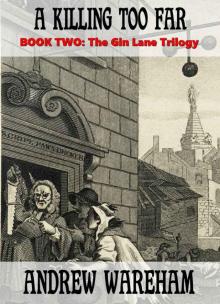 A Killing Too Far
A Killing Too Far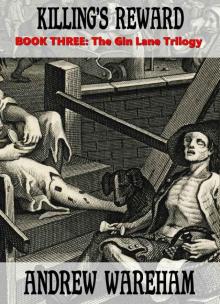 Killing's Reward
Killing's Reward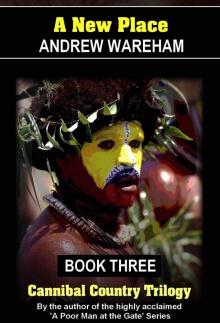 A New Place
A New Place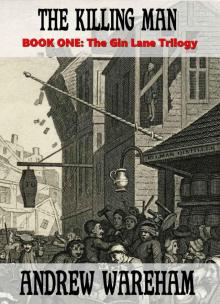 The Killing Man
The Killing Man Bold and Blooded
Bold and Blooded The Breaking Storm (Innocent No More Series, Book 2)
The Breaking Storm (Innocent No More Series, Book 2) Nobody’s Child
Nobody’s Child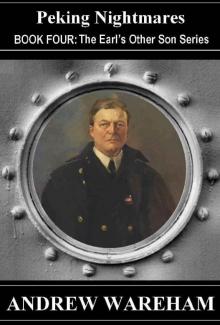 04 Peking Nightmares (The Earl’s Other Son Series, #4)
04 Peking Nightmares (The Earl’s Other Son Series, #4)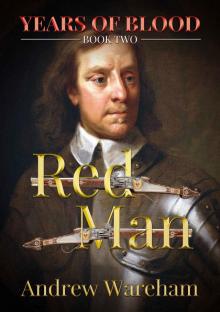 Red Man
Red Man Foreign Mud
Foreign Mud The Gathering Clouds (Innocent No More Series, Book 1)
The Gathering Clouds (Innocent No More Series, Book 1)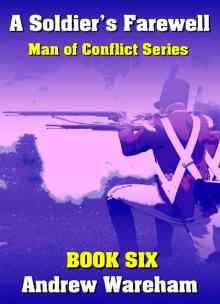 06 A Soldier’s Farewell (Man of Conflict #6)
06 A Soldier’s Farewell (Man of Conflict #6)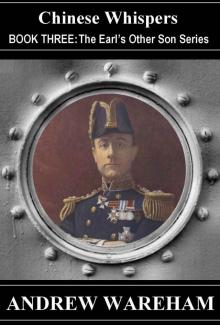 Chinese Whispers
Chinese Whispers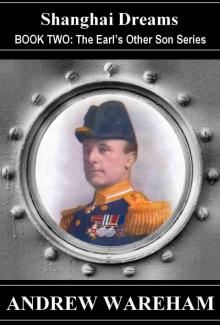 02 Shanghai Dreams (The Earl’s Other Son #2)
02 Shanghai Dreams (The Earl’s Other Son #2)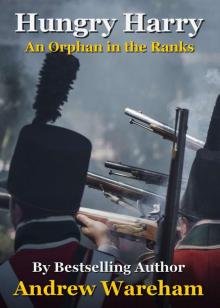 Hungry Harry: An Orphan in the Ranks
Hungry Harry: An Orphan in the Ranks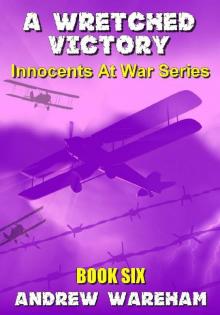 A Wretched Victory (Innocents At War Series, Book 6)
A Wretched Victory (Innocents At War Series, Book 6)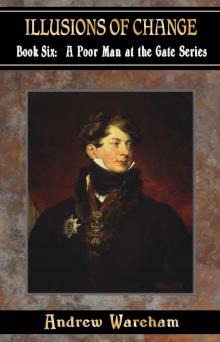 Illusions Of Change (A Poor Man at the Gate Series Book 6)
Illusions Of Change (A Poor Man at the Gate Series Book 6) The Wages Of Virtue (A Poor Man at the Gate Series, Book 8)
The Wages Of Virtue (A Poor Man at the Gate Series, Book 8)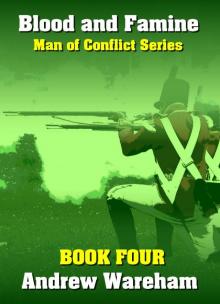 Blood and Famine (Man of Conflict Series, Book 4)
Blood and Famine (Man of Conflict Series, Book 4)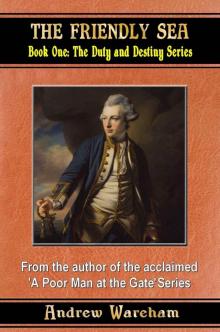 The Friendly Sea (The Duty and Destiny Series, Book 1)
The Friendly Sea (The Duty and Destiny Series, Book 1)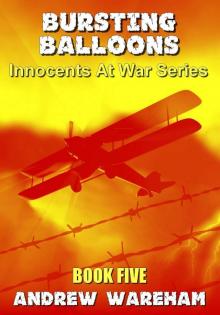 Bursting Balloons (Innocents At War Series, Book 5)
Bursting Balloons (Innocents At War Series, Book 5)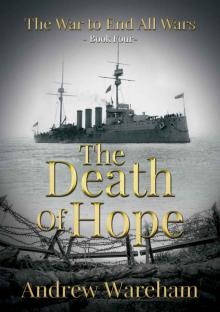 The Death of Hope
The Death of Hope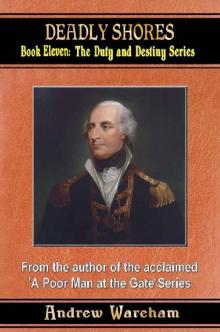 Deadly Shores (The Duty and Destiny Series, Book 11)
Deadly Shores (The Duty and Destiny Series, Book 11) The Vice Of Virtue (A Poor Man At The Gate Series Book 10)
The Vice Of Virtue (A Poor Man At The Gate Series Book 10) Virtue’s Reward (A Poor Man at the Gate Series, Book 11)
Virtue’s Reward (A Poor Man at the Gate Series, Book 11)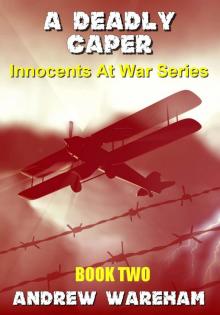 A Deadly Caper (Innocents At War Series, Book 2)
A Deadly Caper (Innocents At War Series, Book 2)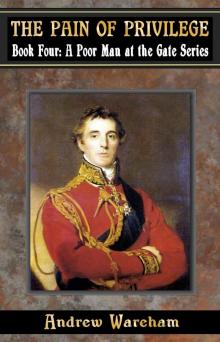 The Pain Of Privilege (A Poor Man at the Gate Series Book 4)
The Pain Of Privilege (A Poor Man at the Gate Series Book 4)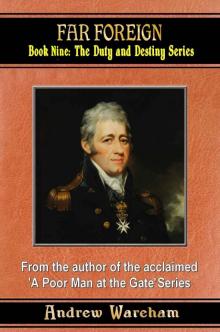 Far Foreign (The Duty and Destiny Series, Book 9)
Far Foreign (The Duty and Destiny Series, Book 9)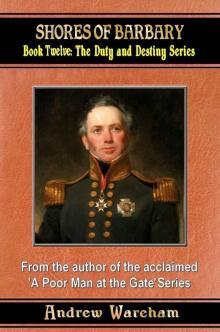 Shores of Barbary (The Duty and Destiny Series, Book 12)
Shores of Barbary (The Duty and Destiny Series, Book 12)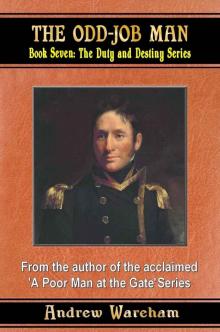 The Odd-Job Man (The Duty and Destiny Series, Book 7)
The Odd-Job Man (The Duty and Destiny Series, Book 7)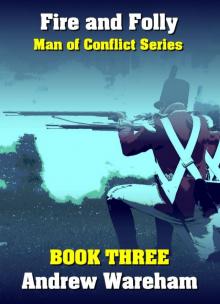 Fire and Folly (Man of Conflict Series Book 3)
Fire and Folly (Man of Conflict Series Book 3)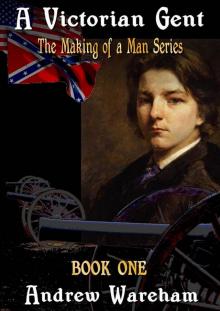 A Victorian Gent (The Making of a Man Series, Book 1)
A Victorian Gent (The Making of a Man Series, Book 1)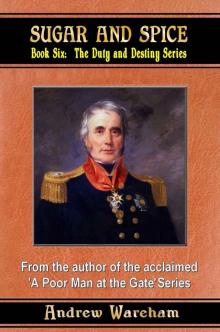 Sugar and Spice (The Duty and Destiny Series, Book 6)
Sugar and Spice (The Duty and Destiny Series, Book 6)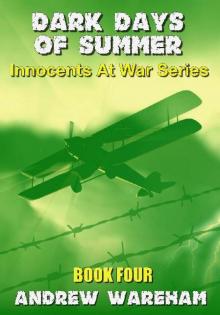 Dark Days Of Summer (Innocents At War Series, Book 4)
Dark Days Of Summer (Innocents At War Series, Book 4)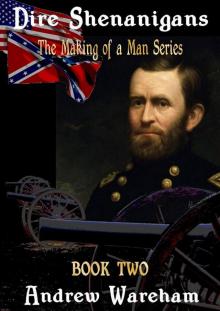 Dire Shenanigans (The Making of a Man Series, Book 2)
Dire Shenanigans (The Making of a Man Series, Book 2)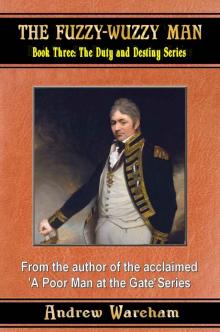 The Fuzzy-Wuzzy Man (The Duty and Destiny Series, Book 3)
The Fuzzy-Wuzzy Man (The Duty and Destiny Series, Book 3) Privilege Preserved (A Poor Man at the Gate Series Book 5)
Privilege Preserved (A Poor Man at the Gate Series Book 5)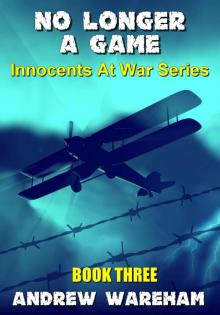 No Longer A Game (Innocents At War Series, Book 3)
No Longer A Game (Innocents At War Series, Book 3)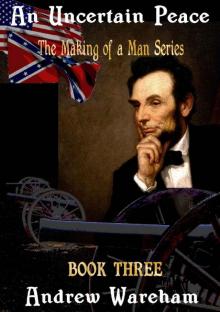 An Uncertain Peace (The Making of a Man Series, Book 3)
An Uncertain Peace (The Making of a Man Series, Book 3)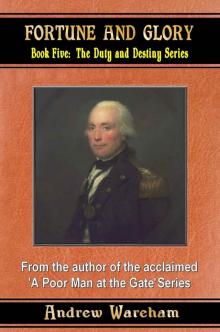 Fortune And Glory (The Duty and Destiny Series, Book 5)
Fortune And Glory (The Duty and Destiny Series, Book 5) The Old Order (A Poor Man at the Gate Series Book 7)
The Old Order (A Poor Man at the Gate Series Book 7) A Place Called Home (Cannibal Country Trilogy, Book 2)
A Place Called Home (Cannibal Country Trilogy, Book 2) Nouveau Riche (A Poor Man at the Gate Series, Book 2)
Nouveau Riche (A Poor Man at the Gate Series, Book 2) The Privateersman (A Poor Man at the Gate Series Book 1)
The Privateersman (A Poor Man at the Gate Series Book 1)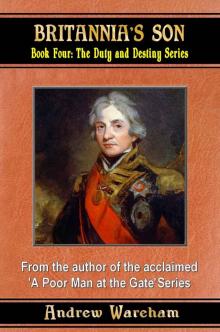 Britannia’s Son (The Duty and Destiny Series, Book 4)
Britannia’s Son (The Duty and Destiny Series, Book 4)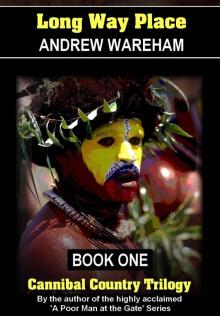 Long Way Place (Cannibal Country Trilogy, Book 1)
Long Way Place (Cannibal Country Trilogy, Book 1)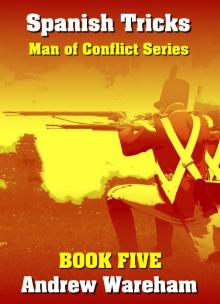 Spanish Tricks (Man of Conflict Series, Book 5)
Spanish Tricks (Man of Conflict Series, Book 5) A Parade Of Virtue (A Poor Man At The Gate Series Book 9)
A Parade Of Virtue (A Poor Man At The Gate Series Book 9)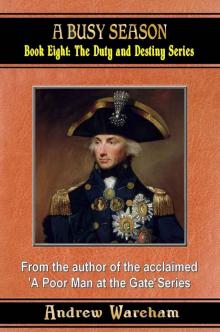 A Busy Season (The Duty and Destiny Series, Book 8)
A Busy Season (The Duty and Destiny Series, Book 8) Billy Bacon and the Soldier Slaves (Colonial Warrior Series, Book 1)
Billy Bacon and the Soldier Slaves (Colonial Warrior Series, Book 1) Raging Rajahs (Man of Conflict Series, Book 2)
Raging Rajahs (Man of Conflict Series, Book 2)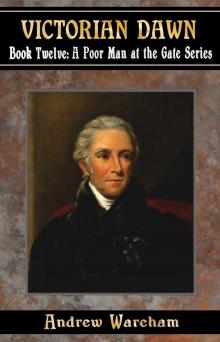 Victorian Dawn (A Poor Man at the Gate Series, Book 12)
Victorian Dawn (A Poor Man at the Gate Series, Book 12) Born To Privilege (A Poor Man at the Gate Series Book 3)
Born To Privilege (A Poor Man at the Gate Series Book 3)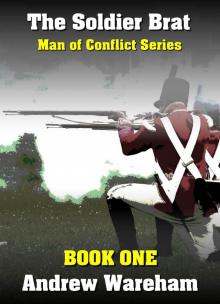 The Soldier Brat (Man of Conflict Series, Book 1)
The Soldier Brat (Man of Conflict Series, Book 1)